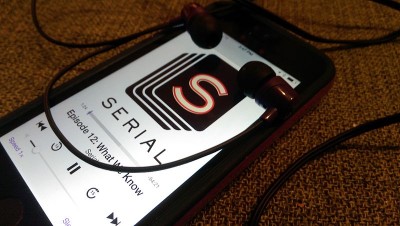Top state court reinstates murder conviction of Adnan Syed; his case was chronicled in 'Serial' podcast

Photo by Casey Fiesler/Flickr.com.
On Friday, Maryland’s top court reinstated the murder conviction of Adnan Syed, whose case gained prominence after it was examined in the Serial podcast.
The Maryland Court of Appeals rejected Syed’s claims that he was entitled to a new trial because of ineffective assistance of counsel, the Baltimore Sun reports.
Syed was convicted in 2000 on charges of murder, kidnapping, robbery and false imprisonment in the death of 18-year-old Hae Min Lee, a high school classmate he once dated.
An intermediate appeals court had ruled in March 2018 that Syed was entitled to a new trial because his lawyer didn’t contact an alibi witness who said she saw Syed at the library around the time that Lee was murdered.
The Maryland Court of Appeals agreed with the intermediate court that the trial lawyer was ineffective for failing to contact the witness, but said Syed was not prejudiced by that failure.
“Every mistake made by trial counsel does not cause prejudice to the defendant’s case,” the appeals court said in the March 8 opinion.
The lineup on the ineffective assistance claim was 4-3; one member of the majority concurred in the result but not in the reasoning.
Judge Clayton Greene Jr. wrote the majority opinion.
Even if the alibi witness was correct about seeing Syed in the library during a 10-minute period the day of the murder, it does little more than call into question the prosecution timeline, Greene said. Syed could still have killed Lee after the library visit, he wrote.
Greene’s opinion cited other evidence implicating Syed.
A different witness had testified that Syed had told him hours before the murder, “I’m going to kill that bitch,” the appeals court said. Afterward, the witness said, Syed showed him the body in the trunk of her car and boasted, “I killed somebody with my bare hands.”
At the time the witness said he was at a park with Syed to bury the body, phone records showed Syed received calls in that vicinity. The witness also was able to direct police to the location of Lee’s car.
In a unanimous part of the decision, the appeals court found that Syed waived a second claim of ineffectiveness by failing to raise it in his initial petition for post-conviction relief.
The second claim had argued that Syed’s lawyer was ineffective because she failed to cross-examine an expert about the reliability of the cellphone data that placed Syed at the scene of the buried body.
Three dissenters said they thought Syed was prejudiced by the trial lawyer’s failure to investigate the alibi witness. Although the state’s evidence was extensive, it was circumstantial, the dissent said.
“There exists a reasonable probability that had this alibi defense been offered, at least one juror, if not more jurors, would have a reasonable doubt of Mr. Syed’s guilt,” the dissent said.
Write a letter to the editor, share a story tip or update, or report an error.


